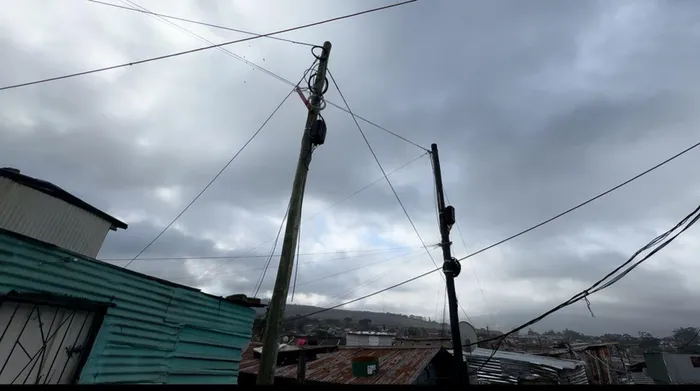How construction mafia tactics are choking broadband in our townships

Broadband infrastructure projects, some privately backed, others public sector-driven, are being stalled, sabotaged or forcefully redirected to benefit self-appointed “business forums” operating as gatekeepers of ward-based development, says the author.
Image: Supplied
In the quiet chaos of South Africa’s townships, where digital connectivity holds the promise of economic liberation, an insidious force has taken root, one borrowed from the dusty construction trenches but now entrenched in the corridors of fibre broadband rollouts. Enter the so-called “construction mafia”, a term once synonymous with hijacked building projects, now creeping dangerously into the ICT sector.
At first glance, the broadband industry and concrete mixers seem worlds apart. But dig a little deeper, into the pavements where fibre must be trenched, the poles where wireless antennas must rise, and you’ll find eerie parallels. Where there is trenching, there is access to lucrative contracts. And where there is access to capital and opportunity, there is a criminal element lurking with a clipboard and a demand: “Give us our 30% or stop your project.” This isn’t metaphorical. It’s become the lived experience of dozens of fibre network operators, small ISPs, and even state-funded connectivity initiatives in township communities across the Eastern Cape and beyond.
The effect? Broadband infrastructure projects, some privately backed, others public sector-driven, are being stalled, sabotaged or forcefully redirected to benefit self-appointed “business forums” operating as gatekeepers of ward-based development. The Origins of a Misused Mandate The infamous “30%” demand did not arise from thin air.
In 2017, amendments to South Africa’s Preferential Procurement Policy Framework Act (PPPFA) mandated that at least 30% of certain public contracts be allocated to designated groups, co-operatives, youth, women, military veterans and black-owned SMMEs. In its essence, the policy was designed to accelerate economic inclusion and empower those long locked out of mainstream procurement. What began as a well intentioned policy instrument has since mutated in township spaces, particularly within ICT infrastructure deployment, into a racket.
In many cases, these forums don’t register formal businesses, possess no technical capability to deliver fibre works, and offer no community upliftment. Instead, they appear on-site with demands backed by intimidation. Disturbingly, they often do so in collusion with powerful political or local actors who benefit from the chaos.
Fibre Under Siege
The intrusion into the ICT sector isn’t just an isolated nuisance, it is a full-blown crisis. Emerging black-owned ISPs and fibre network operators attempting to deploy infrastructure in marginalised wards frequently encounter resistance from groups demanding a “cut”, regardless of whether the project is publicly funded or not. Private telecoms players, who should be encouraged to invest in under-serviced areas, are instead being driven away. In some municipalities, it has become common knowledge that unless a fibre provider ‘greases the right palms’ or outsources to politically connected subcontractors, their wayleave approvals will be delayed, revoked or sabotaged in the field. Where they do proceed without acquiescence, trenching teams face threats, cable damage or worse. It’s a war zone dressed up as empowerment.
From Grit to Graft: The Evolution of the Construction Mafia
To understand the current grip of this menace on broadband, we must look at its roots in the traditional construction industry. In his research, political analyst Dr Ongama Mtimka traces the rise of construction mafias as a by-product of post-apartheid transformation fatigue. Initially, township-based forums, advocated for genuine participation in large infrastructure projects, pointing to exclusionary practices by established (and mostly white-owned) firms. As the forums multiplied and regulatory enforcement remained weak, these structures transformed from activists to opportunists. Intimidation, armed invasions, and extortion became their currency. Their model spread quickly, and the broadband sector, with its massive infrastructure potential and reliance on local trenching, became the next easy target. Today, what we face is no longer a transformation agenda. It is an informal taxation regime that sabotages projects, inflates costs, and sidelines capable black businesses who cannot afford to “pay to play”.
A Blockade Against Competition
In some Eastern Cape wards, only certain fibre companies are able to operate, those aligned with forum interests or those willing to part with their budgets. This has created territorial monopolies where criminal elements act as de facto regulators, shutting out smaller, newer entrants. In essence, the construction mafia tactics are being used to stifle competition. This raises troubling questions: How can a country committed to inclusive digital access allow such informal rackets to dictate who connects the unconnected? Why are our municipalities, who issue wayleaves and oversee rollouts, not doing more to insulate broadband from this growing threat?
Reclaiming the Rollout
The South African government cannot afford to treat this as a fringe issue. If left unchecked, the criminalisation of township fibre deployment will reverse the very transformation gains the 30% policy aimed to deliver. It will entrench informal power structures that reward violence over competence, and worse, deny township residents their right to fast, affordable, and reliable internet.
To address this, three things must happen:
1. Separate transformation from extortion: Community participation should be facilitated through transparent, vetted, and skills-based procurement, not coercion.
2. Empower municipalities to act: Local governments must implement safeguards in their wayleave and permit systems to prevent forum capture and ensure fair access for all network providers.
3. Protect ISPs and installers: Police and law enforcement must prioritise cases where criminal syndicates interfere with digital infrastructure, treating it not as turf wars, but economic sabotage.
A New Digital Frontier, or Another Missed Opportunity?
South Africa sits on the brink of a digital revolution. If the broadband trench becomes the new battleground for turf, patronage and intimidation, we will squander yet another opportunity to transform our economy from the bottom up. The promise of broadband in townships is not just faster TikTok downloads, it’s access to education, remote work, digital entrepreneurship and smart service delivery. If the so-called construction mafia is allowed to co-opt this future, then we must ask: Who really benefits from transformation when the most vulnerable are kept offline? It’s time to unplug the racketeers and reconnect our communities, for real.

Luvo Grey, Secretary General of the Progressive Blacks in ICT
Image: Supplied
Luvo Grey, Secretary General of Progressive Blacks in ICT (PBICT). He writes in his personal capacity.
*** The views expressed here do not necessarily represent those of Independent Media or IOL.
BUSINESS REPORT